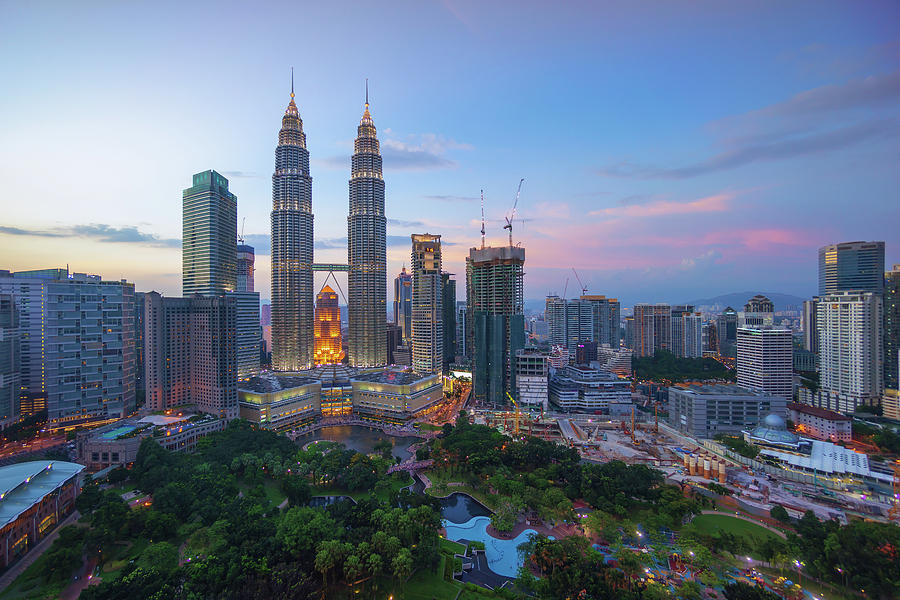Former US President Bill Clinton famously crystalised the 1992 Presidential election campaign with the words “it’s the economy stupid”. He went on to win handsomely.
Never before have those words been more relevant in Malaysia because however much some parties try to tell us that what matters ahead of GE13 is Bersih 3.0 or hudud, these are just distractions.
What matters to Malaysians in the short term is how we ride out the economic problems besetting the world and what matters in the long term is how our nation evolves into a high income knowledge economy.
In other words – the economy.
That’s why the Finance Minister and Prime Minister Datuk Seri Najib Razak has ensured that getting the economic fundamentals right is the cornerstone of his Government.
But it isn’t always an easy issue to communicate. Economic news doesn’t always make for dramatic newspaper headlines and therefore it doesn’t always get the attention it deserves.
A slanging match between Karpal Singh and PAS is always more likely to be celebrated by journalists (and enjoyed by the rakyat) than the latest economic data from ratings agency Fitch. But that doesn’t mean this data is any less important.
So here is the latest good news. Fitch Ratings has re-affirmed Malaysia’s rating at A-, with the outlook remaining stable. This is due to country’s strong current account surplus and the Government’s “structural reform plan for the economy”.
This is important because it means our borrowing costs stay low, meaning more money for projects that benefit the people. To put it into perspective, Fitch rates Spain as a BBB and Greece as a CCC.
The Fitch report adds to a procession of good economic news during 2012 that includes the IMF maintaining our four percent growth forecast in the face of recession in Europe, Malaysia being branded the new IPO hub after the listings of Felda Global and IHH, and a confirmation that we have nothing to fear from European investors deleveraging here.
Then there was the report by the United Nations Conference on Trade and Development (UNCTAD) ranking Malaysia as the third most popular foreign direct investment destination in Malaysia describing us as a “place of strength.”
Translated, that means the news has been overwhelmingly good.
But good news for Malaysia is bad news for Pakatan Rakyat, a coalition that specialises in doom and gloom regardless of whether its stance is supported by facts. Just ask the mining company Lynas – who the courts have found to be the victim of a misinformation campaign.
Pakatan pursues a policy of not reacting to any news that doesn’t suits its negative agenda and in the process it has become conspicuous by its silence whenever the good news reports stream in.
But what they haven’t seen coming is that its silence on these key economic matters tells also tells the world it is devoid of ideas – an impression confirmed by its lack of published economy policies. The best it has done so far are ad hoc pronouncements on PTPTN and vehicle excise that defy basic arithmetic.
This hasn’t gone unnoticed by influential foreign observers. Both Fitch and the Wall Street Journal have questioned Pakatan’s economic credentials and have speculated as to how a Pakatan Government could mishandle our precious economy.
Fitch said that “given the political environment” it believes there is an “implementation risk to the reform agenda”.
The Wall Street Journal was even more direct saying “investors must hope that (Najib’s reform) agenda stays on track regardless of the outcome of an election expected by early 2013.”
Since Pakatan hasn’t agreed to continue the Government’s economic agenda, let alone offer its own vision, how could the WSJ come to any other conclusion?
If you look at how Najib spends his time away from Parliament you will see that he spends most of it meeting people, talking about 1Malaysia, demonstrating inclusiveness through social media and doing all the statesman duties required by a world leader.
What he doesn’t do is hold endless press conferences in which he talks ceaselessly about the latest economic indices.
But that doesn’t mean his number one focus isn’t achieving developed nation status by the year 2020.
The economy might not be the front page news as we head toward GE13, but as Pakatan Rakyat is set to find out the hard way, it is still the most important.

